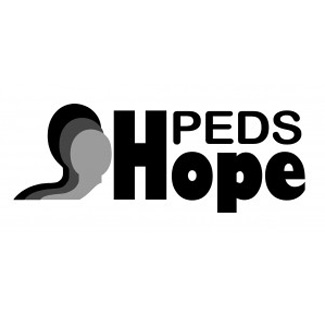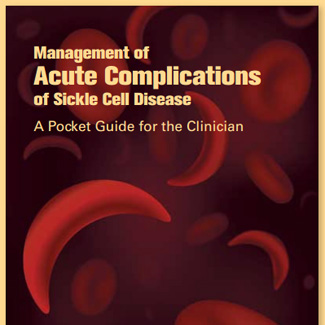Understanding the Impact of Sickle Cell Disease
This infographic for sickle cell awareness was produced by the new Sickle Cell Disease Coalition, formed by American Society of Hematology.
This infographic for sickle cell awareness was produced by the new Sickle Cell Disease Coalition, formed by American Society of Hematology.

FDA is releasing six public service announcements, a blog, and an infographic to encourage people of diverse races and ethnicities to participate in clinical trials.
You can be a #ClinicalTrialsChampion by sharing these resources far and wide! Spread the word: a person’s race or ethnicity can affect how his or her body responds to medicine.

The Vision of Hope curriculum was motivated by a commitment to integrate the principles of pediatric palliative care to sickle cell disease and duchenne muscular dystrophy. Pediatric Palliative Care seeks to provide evidence-based curricular materials to institutions. It incorporates emotional, spiritual, developmental, and physical dimensions creating a holistic approach to care. The Johns Hopkins Berman Institute has created 11 modules to help guide healthcare providers on this approach. Scroll down on the linked page and click the sickle cell link to view the different resources.
Click here to visit the site: http://www.bioethicsinstitute.org/research/projects-2/hope
A thankful teenager, Keon Penn of Atlanta celebrates his 14th birthday after being declared “cured” from sickle cell disease. Two years ago Keon underwent the world’s first unrelated stem-cell transplant at Egelston Children’s Hospital in Atlanta on December 11, 1998. Read more…
Luzzatto, L (2012). Mediterr J Hematol Infect Dis. 2012; 4(1): e2012065. Read more on PubMed

Three downloadable pocket guides presented by ASH in 2014, adapted from the National Heart, Lung, and Blood Institute’s Evidence Based Management of Sickle Cell Disease: Expert Panel Report, 2014:

The purpose of the “Evidence-Based Management of Sickle Cell Disease: Expert Panel Report (EPR), 2014” is to synthesize the available scientific evidence on sickle cell disease and offer guidance to busy primary care clinicians. Download the full report or individual chapters.
This form is designed to help facilitate understanding of the family’s circumstances, knowledge of sickle cell disease, and satisfaction with health care and to identify patient and family concerns and potential barriers to appropriate treatment. It should be completed by the family when the child is not ill (e.g. in the waiting room prior to a clinic visit) and subsequently reviewed with the family by a health care provider.
Patients and families should watch for the following conditions that need an urgent medical evaluation:
• Fever of 101° F or higher
• Chest pain
• Shortness of breath
• Increasing tiredness
• Abdominal swelling
• Unusual headache
• Any sudden weakness or loss of feeling
• Pain that will not go away with home treatment
• Priapism (painful erection that will not go down)
• Sudden vision change
Patients and families should watch for the following conditions that need an urgent medical evaluation:
• Fever of 101° F or higher
• Chest pain
• Shortness of breath
• Increasing tiredness
• Abdominal swelling
• Unusual headache
• Any sudden weakness or loss of feeling
• Pain that will not go away with home treatment
• Priapism (painful erection that will not go down)
• Sudden vision change
Patients and families should watch for the following conditions that need an urgent medical evaluation:
• Fever of 101° F or higher
• Chest pain
• Shortness of breath
• Increasing tiredness
• Abdominal swelling
• Unusual headache
• Any sudden weakness or loss of feeling
• Pain that will not go away with home treatment
• Priapism (painful erection that will not go down)
• Sudden vision change